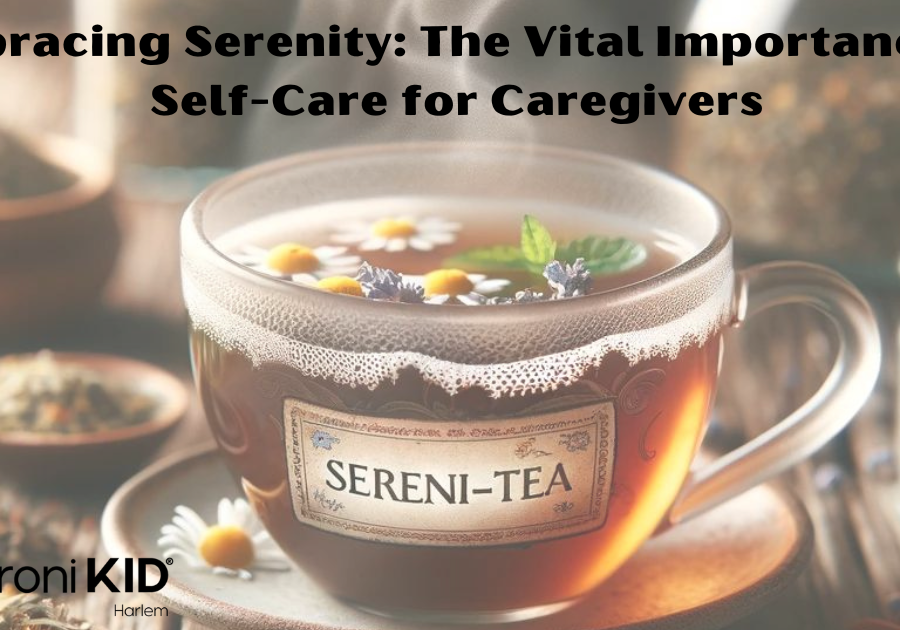Relaxing Herbal Tea Blend: Sereni-Tea
Ingredients:
2 parts chamomile flowers
1 part lavender buds
1 part lemon balm leaves
1/2 part passionflower
1/2 part peppermint leaves
Instructions:
Prepare: Gather all the ingredients in the specified quantities.
Mix: Combine the chamomile flowers, lavender buds, lemon balm leaves, passionflower, and peppermint leaves in a bowl.
Store: Place the blend in an airtight container away from direct sunlight.
Brew: To prepare a cup of Sereni-Tea, use 1-2 teaspoons of the herbal blend per cup of hot water.
Steep: Let it steep for 5-7 minutes, allowing the herbs to infuse fully.
Enjoy: Strain the tea and enjoy its calming aroma and relaxing effects.
Why Self-Care for Caregivers Is Essential
Caregivers play a vital role in our society, often sacrificing their own well-being to provide care and support for loved ones. Whether caring for a family member, a friend, or a client, the demands of caregiving can be physically, emotionally, and mentally taxing. In the midst of fulfilling their responsibilities, caregivers often overlook their own needs, neglecting self-care practices that are crucial for their overall health and well-being. Here's why self-care for caregivers is of utmost importance:
1. Prevents Burnout:
Caregiving can be overwhelming, leading to burnout—a state of emotional, mental, and physical exhaustion. Engaging in self-care activities such as relaxation techniques, hobbies, or simply taking breaks can help prevent burnout by replenishing energy levels and reducing stress.
2. Promotes Physical Health:
Neglecting one's physical health while caregiving can lead to various health issues, including fatigue, weakened immune system, and chronic conditions. Prioritizing self-care activities such as regular exercise, nutritious eating, and adequate sleep can boost physical health and resilience.
3. Enhances Emotional Well-being:
Caring for others can evoke a wide range of emotions, including compassion, empathy, frustration, and grief. Taking time for self-care allows caregivers to process their emotions, seek support when needed, and cultivate resilience in the face of challenges.
4. Improves Relationships:
When caregivers neglect their own needs, they may become irritable, resentful, or distant, which can strain relationships with care recipients and others. Practicing self-care fosters a sense of balance, fulfillment, and emotional stability, enhancing the quality of relationships and communication.
5. Fosters Personal Growth:
Engaging in self-care activities not only nurtures physical and emotional well-being but also facilitates personal growth and self-discovery. Whether through meditation, journaling, or pursuing creative interests, caregivers can cultivate a deeper understanding of themselves and their needs, leading to greater self-compassion and fulfillment.
In conclusion, self-care is not a luxury but a necessity for caregivers. By prioritizing their own well-being, caregivers can sustainably fulfill their caregiving roles, maintain their health and resilience, and ultimately provide better care for their loved ones. It's essential for caregivers to recognize the importance of self-care and incorporate it into their daily routines, ensuring they can continue to thrive both personally and professionally amidst the challenges of caregiving.



